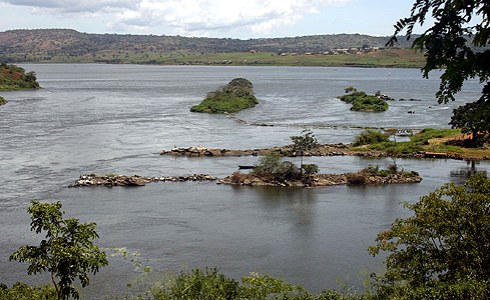Addis Abeba — Egypt and Sudan have insisted that negotiations over the Grand Ethiopian Renaissance Dam (GERD) should remain confined to the three riparian states and dismissed what they claimed were efforts to involve other Nile Basin countries.
In a joint communiqué released released Wednesday, 3 September, following a “2+2” consultative meeting of the foreign and water ministers of both countries in Cairo, the two governments warned that Ethiopia’s “unilateral steps” to fill and operate the dam “entail serious consequences for the two downstream states and represent a continuous threat to stability in the Eastern Nile Basin in accordance with international law.”
The Egyptian delegation was led by Foreign Minister Badr Abdelatty and Water Resources and Irrigation Minister Hani Sweilem, while Sudan was represented by Minister of State for Foreign Affairs and International Cooperation Omar Seddig and Agriculture and Irrigation Minister Ismat Qureshi Abdallah.
According to the joint statement, the talks reviewed progress since the first round of the 2+2 mechanism in February and examined “areas of water cooperation and ways of enhancing them in a manner that serves the interests of the two peoples.” Both sides said “the necessity of securing the water security of the two downstream states of the Nile River” and pledged to preserve “the full water rights and uses of both countries, in accordance with the legal framework governing the Nile River and the 1959 Agreement.”
Follow us on WhatsApp | LinkedIn for the latest headlines
“Sudanese and Egyptian water security constitutes an indivisible whole”, they said, and expressed “categorical rejection of any unilateral measures in the Eastern Nile Basin that may cause harm to their water interests.”
They also underscored the importance of coordination in regional and international fora, support for the Nile Basin Initiative, and the need to return the Initiative “to its consensual foundations upon which it was established.”
On the GERD, the communiqué stated that Ethiopia “must revise its policy in the Eastern Nile Basin to restore cooperation among the basin countries,” noting that concerns over the dam’s unregulated discharges, safety, and potential drought impacts remain unresolved. “The issue of the Ethiopian Dam remains a matter among the three states (Egypt, Sudan, Ethiopia),” the statement read, rejecting “any attempts to involve other basin countries in this contentious issue.”
The meeting also addressed broader bilateral relations, with both sides pledging to “strengthen and deepen the eternal relations binding the two peoples” and to maintain regular high-level visits. Sudan outlined its reconstruction priorities, while Egypt “expressed its readiness to work jointly in support of various sectors in Sudan” and welcomed opportunities to meet Sudanese training needs in agriculture and irrigation. The next meeting of the Permanent Joint Technical Commission for Nile Waters is scheduled for October on the margins of Cairo Water Week.
The joint statement came as Ethiopia prepares to inaugurate the GERD. This week, Prime Minister Abiy Ahmed announced the completion and full operation of the GERD, describing it as the end of Ethiopia’s “greatest historical challenge.” Abiy referred to the Abay River (Blue Nile) as the “mother of all problems” Ethiopia had faced for centuries, arguing that its harnessing through the GERD marks the end of a “thousand-year struggle.” He contrasted this milestone with other national challenges, such as lack of access to the Red Sea, poverty, and resource scarcity, which he described as minor compared to the hurdles overcome to complete the dam.
Earlier, the Ministry of Foreign Affairs stated Ethiopia’s position on the the GERD. It “embodies African self-reliance and regional development,” MoFA said through its Spokesperson, Ambassador Nebiat Getachew. He told local reporters that “the completion of the dam is a symbol of African self-reliance and regional development,” while emphasizing Ethiopia’s commitment to the Cooperative Framework Agreement (CFA), which he described as “a landmark legal instrument governing equitable use of the Nile.” The CFA entered into force in October 2024 after years of negotiations under the Nile Basin Initiative.
It recent weeks Egypt has launched an intensive diplomatic outreach across Africa, presenting it as a counterweight to Ethiopia’s Nile policies. Egyptian media reported that Foreign Minister Abdelatty held phone conversations on Thursday with his counterparts in Sudan, South Sudan, Djibouti, Uganda, Kenya, and Somalia. According to a Foreign Ministry statement, Abdelatty “reaffirmed Egypt’s categorical rejection of unilateral measures that violate international law in the Eastern Nile Basin.”


